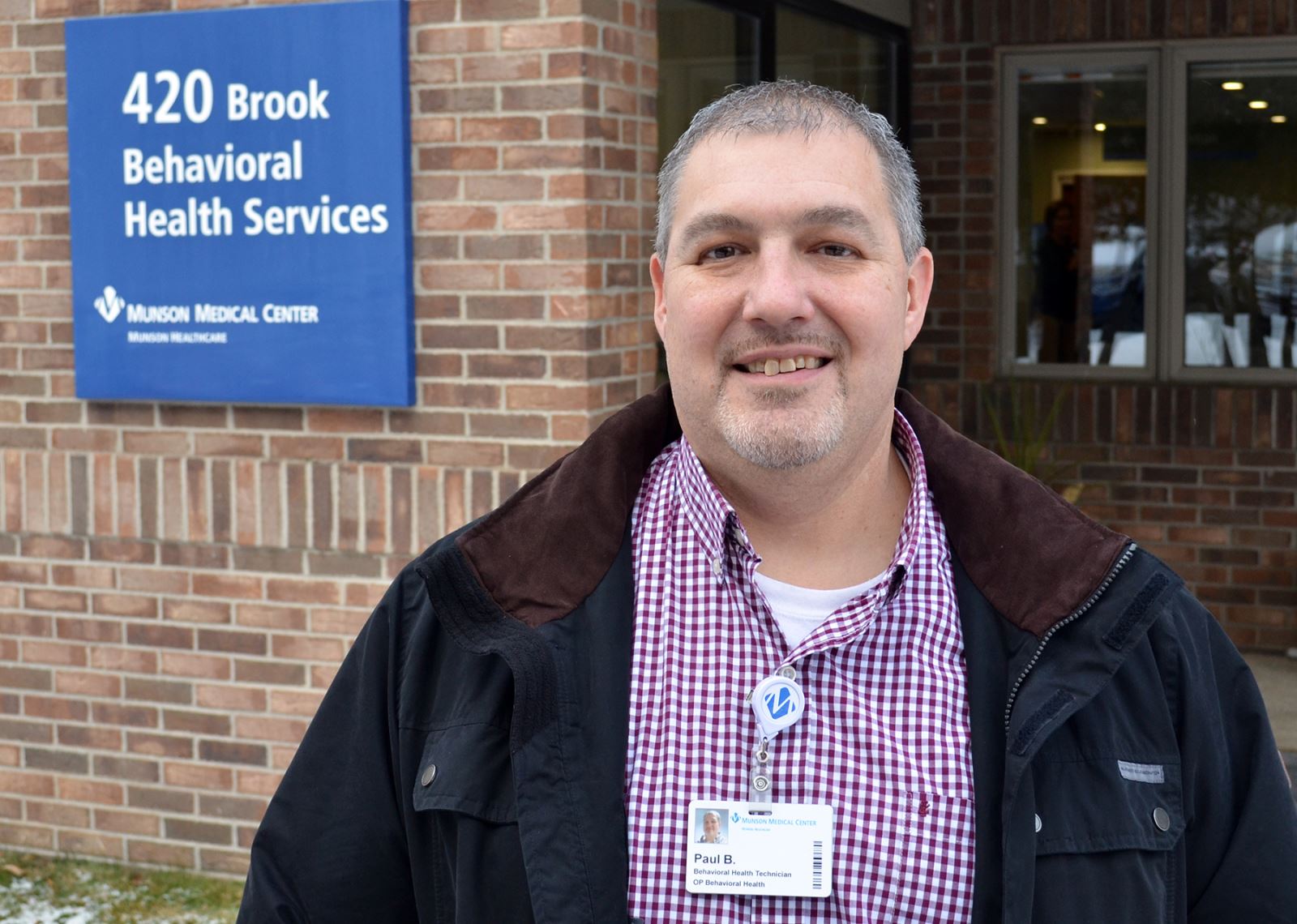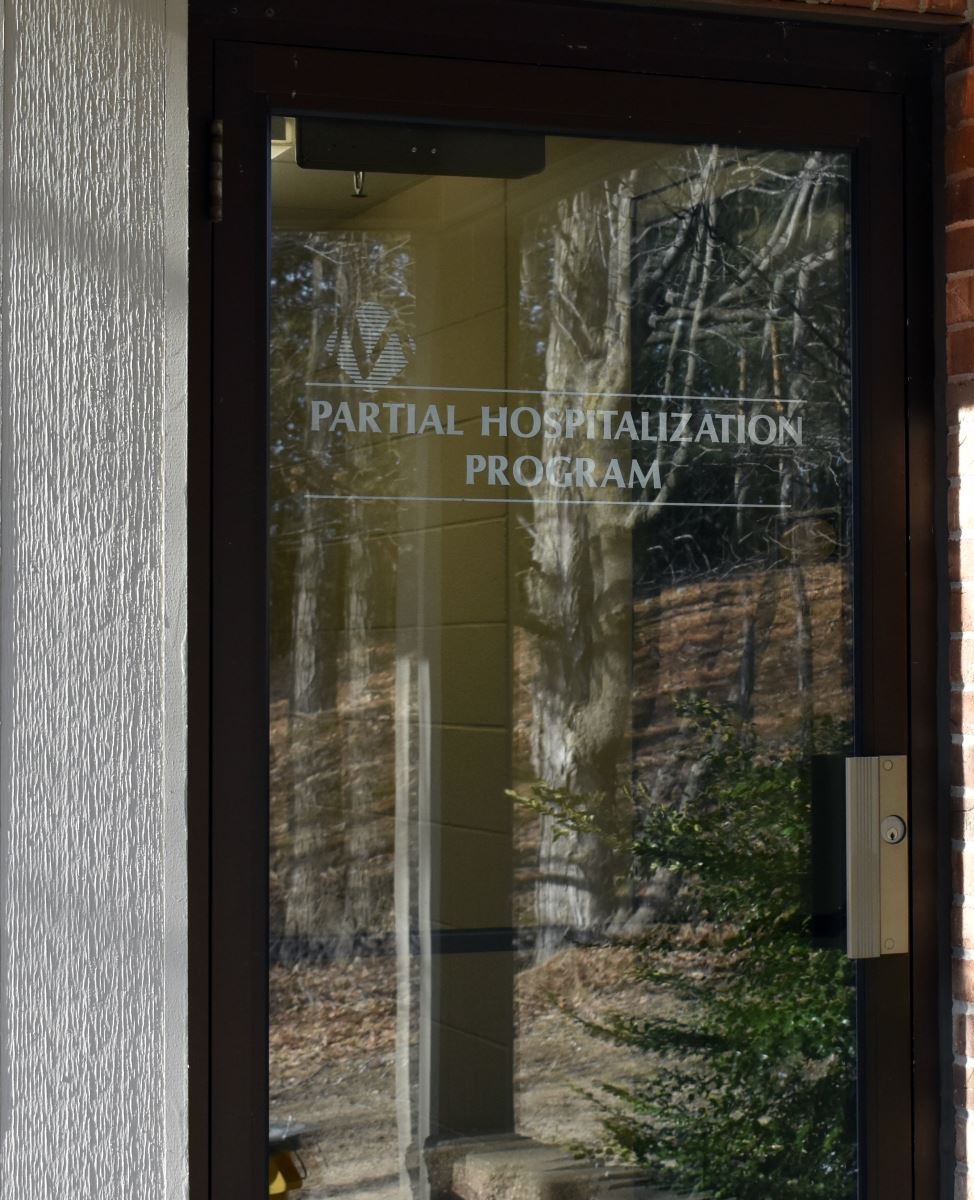His Journey Now Gives Others Hope

Paul Bock knows the battle patients with substance use disorder face.
He’s been there.
As a peer recovery coach at Munson Medical Center he now uses his own journey to recovery as a launching pad to encourage patients struggling to free themselves from the grip of opioids, alcohol, and other addictive substances.
“On an ongoing basis I use my story to build rapport with people I am working with. If somebody has reached the point where they are drinking just to stay alive, I can relate to that,” Bock said. “My struggle was with anything that would alter my state of mind.”
Bock recalls introducing himself to a patient one day and sharing his story. The patient asked him how he overcame his own addictions.
“I explained it to him the best that I could,” he said. “And here is the part that got to me – as he turned to look at me he said: ‘So there’s hope. You’ve given me hope.’ That was pretty powerful for me.”

Stopping the Opioid Epidemic
Munson Medical Center Behavioral Health Manager Susan Kramer said Bock was hired as part of the hospital’s efforts to stem the region’s opioid epidemic. Current funding for peer recovery coach positions comes from two different medication-assisted treatment grants. One grant covers Behavioral Health Outpatient services, the other is for patients with substance use disorder in Munson Medical Center.
“Coaches roles are to connect with patients and offer support, resources, community recovery options and most importantly – to offer hope from someone who has been there,” Kramer said. “They are motivators, allies, role models, problem solvers and advocates for individuals with these disorders.”
Bock has been trained and certified through the Michigan Department of Health and Human Services as well as by the Connecticut Community for Addiction Recovery, which is recognized nationally.
In his outpatient role, Bock said he has been going throughout the community and introducing himself to the various resource agencies in the region, as well as to providers in outpatient areas of the hospital. A typical day begins with checks of email and phone messages, and then maybe it is off to meet with a patient to explain what services may help them, and determine if the patient wants help. A big part of his role is to let the patients know that they are not alone.
Other responsibilities involve helping patients navigate systems of care, providing education to patients, family members, and the community about addiction and supportive care, as well as helping reduce the stigma associated with substance use disorder.
A Motivated Man
Bock, who had a successful manufacturing career before his addictions overcame him, said the opportunity to help people get past their addictions motivates him every day.
“I love coming to work and giving somebody a smile,” he said. “Maybe they haven’t laughed in weeks because they have been really struggling. If I can make them smile, and even chuckle, that lets you know that you are alive, right?”
Learn more about Munson Healthcare’s Behavioral Health programs.
Help is Available
People experiencing a crisis may call the region’s 24-hour crisis line at 833-295-0616. The National Suicide Prevention Lifeline provides free, confidential, 24/7 emotional support to people in suicidal crisis or emotional distress. Call or text 988 and speak to a counselor today.